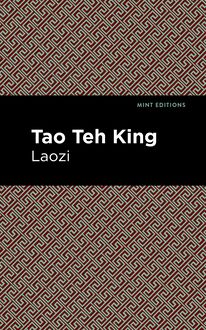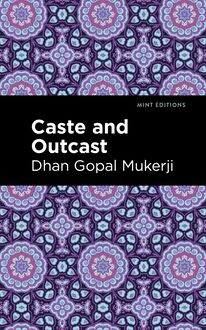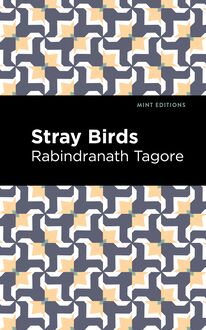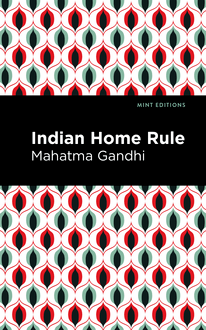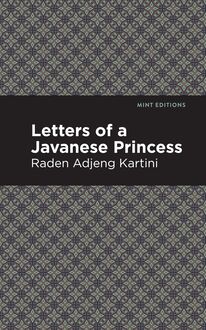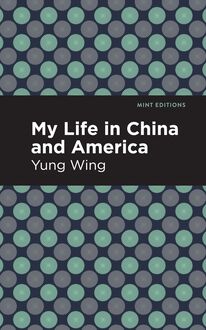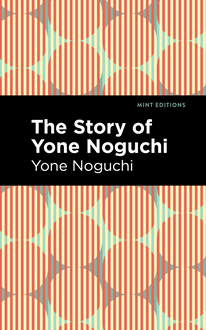-
 Univers
Univers
-
 Ebooks
Ebooks
-
 Livres audio
Livres audio
-
 Presse
Presse
-
 Podcasts
Podcasts
-
 BD
BD
-
 Documents
Documents
-
- Cours
- Révisions
- Ressources pédagogiques
- Sciences de l’éducation
- Manuels scolaires
- Langues
- Travaux de classe
- Annales de BEP
- Etudes supérieures
- Maternelle et primaire
- Fiches de lecture
- Orientation scolaire
- Méthodologie
- Corrigés de devoir
- Annales d’examens et concours
- Annales du bac
- Annales du brevet
- Rapports de stage
La lecture à portée de main

Vous pourrez modifier la taille du texte de cet ouvrage
Découvre YouScribe en t'inscrivant gratuitement
Je m'inscrisDécouvre YouScribe en t'inscrivant gratuitement
Je m'inscrisEn savoir plus
Vous pourrez modifier la taille du texte de cet ouvrage
En savoir plus

Description
Born into a family of sixteen children, Nora Ascouth is used to fighting to be heard. From a young age, Nora becomes determined to have a writing career, and travels around the world looking for the best place to work. From Canada, she moves to Jamaica, where she works for a newspaper. Later, in search of a more personal approach to her work, Nora moves to Chicago to try to sell her own stories. In her attempts to find a way publish her work, Nora ends up finding best friends and fellow writers, Fred and Lolly. The two support Nora as she jumps from job to job, and they all help each other with their writing. After Nora really settles in Chicago, she meets a man that captures her heart immediately. However, as her relationship with Mr. Hamilton grows, conflict arises when he suggests a move to New York. After they marry, the young couple set out to a new city, Nora prepares herself to enter the job market yet again.
With details mirroring author Onoto Watanna’s life, Me: A Book of Rememberance is semi-autobiographical. Through the depiction of the struggles and powerlessness Nora faces as a working woman in the 19th century, Me: A Book of Rememberance explores views on race, gender, and class. With an intimate perspective, Watanna reveals truths derived from first-hand experience; Watanna worked not just as a woman in America, but as a woman with Asian heritage in a time where she was heavily discriminated against.
First published in 1912, Me: A Book of Rememberance is one of Onoto Watanna’s most intimate works, and is rarely found in print. This special edition features a stunning cover design and is printed in an easy-to-read font. With these accommodations, this edition of Me: A Book of Rememberance caters to contemporary readers by restoring the novel to modern standards while preserving the original intricacy of Onoto Watanna’s work.
Sujets
Informations
| Publié par | Mint Editions |
| Date de parution | 23 février 2021 |
| Nombre de lectures | 0 |
| EAN13 | 9781513276571 |
| Langue | English |
| Poids de l'ouvrage | 1 Mo |
Informations légales : prix de location à la page 0,0500€. Cette information est donnée uniquement à titre indicatif conformément à la législation en vigueur.
Extrait
Me
A Book of Remembrance
Onoto Watanna
Me: A Book of Remembrance was first published in 1915.
This edition published by Mint Editions 2021.
ISBN 9781513271576 | E-ISBN 9781513276571
Published by Mint Editions®
minteditionbooks.com
Publishing Director: Jennifer Newens
Design & Production: Rachel Lopez Metzger
Project Manager: Micaela Clark
Typesetting: Westchester Publishing Services
C ONTENTS I II III IV V VI VII VIII IX X XI XII XIII XIV XV XVI XVII XVIII XIX XX XXI XXII XXIII XXIV XXV XXVI XXVII XXVIII XXIX XXX XXXI XXXII XXXIII
I
It was a cold, blizzardy day in the month of March when I left Quebec, and my weeping, shivering relatives made an anxious, melancholy group about my departing train. I myself cried a bit, with my face pressed against the window; but I was seventeen, my heart was light, and I had not been happy at home.
My father was an artist, and we were very poor. My mother had been a tight-rope dancer in her early youth. She was an excitable, temperamental creature from whose life all romance had been squeezed by the torturing experience of bearing sixteen children. Moreover, she was a native of a far-distant land, and I do not think she ever got over the feeling of being a stranger in Canada.
Time was when my father, a young and ardent adventurer (an English-Irishman) had wandered far and wide over the face of the earth. The son of rich parents, he had sojourned in China and Japan and India in the days when few white men ventured into the Orient. But that was long ago.
This story is frankly of myself, and I mention these few facts merely in the possibility of their proving of some psychological interest later; also they may explain why it was possible for a parent to allow a young girl of seventeen to leave her home with exactly ten dollars in her purse (I do not think my father knew just how much money I did have) to start upon a voyage to the West Indies!
In any event, the fact remains that I had overruled my father’s weak and absentminded objections and my mother’s exclamatory ones, and I had accepted a position in Jamaica, West Indies, to work for a little local newspaper called The Lantern .
It all came about through my having written at the age of sixteen a crude, but exciting, story which a kindly friend, the editor of a Quebec weekly paper, actually accepted and published.
I had always secretly believed there were the strains of genius somewhere hidden in me; I had always lived in a little dream world of my own, wherein, beautiful and courted, I moved among the elect of the earth. Now I had given vivid proof of some unusual power! I walked on air. The world was rose-colored; nay, it was golden.
With my story in my hand, I went to the office of a family friend. I had expected to be smiled upon and approved, but also lectured and advised. My friend, however, regarded me speculatively.
“I wonder,” said he, “whether you couldn’t take the place of a girl out in Jamaica who is anxious to return to Canada, but is under contract to remain there for three years.”
The West Indies! I had heard of the land somewhere, probably in my school geography. I think it was associated in my mind in some way with the fairy-stories I read. Nevertheless, with the alacrity and assurance of youth I cried out that of course I would go.
“It’s a long way off,” said my friend, dubiously, “and you are very young.”
I assured him earnestly that I should grow, and as for the distance, I airily dismissed that objection as something too trivial to consider. Was I not the daughter of a man who had been back and forth to China no fewer than eighteen times, and that during the perilous period of the Tai-ping Rebellion? Had not my father made journeys from the Orient in the old-fashioned sailing-vessels, being at sea a hundred-odd days at a time? What could not his daughter do?
Whatever impression I made upon this agent of the West Indian newspaper must have been fairly good, for he said he would write immediately to Mr. Campbell, the owner of The Lantern , who, by the way, was also a Canadian, and recommend me.
I am not much of a hand at keeping secrets, but I did not tell my parents. I had been studying shorthand for some time, and now I plunged into that harder than ever, for the position was one in which I could utilize stenography.
It was less than two weeks later when our friend came to the house to report that the West Indian editor had cabled for me to be sent at once.
I was the fifth girl in our family to leave home. I suppose my father and mother had become sadly accustomed to the departing of the older children to try their fortunes in more promising cities than Quebec; but I was the first to leave home for a land as distant as the West Indies, though two of my sisters had gone to the United States. Still, there remained a hungry, crushing brood of little ones younger than I. With what fierce joy did I not now look forward to getting away at last from that same noisy, tormenting brood, for whom it had been my particular and detested task to care! So my father and mother put no obstacle in the way of my going. I remember passionately threatening to “run away” if they did.
My clothes were thick and woolen. I wore a red knitted toque, with a tassel that wagged against my cheek. My coat was rough and hopelessly Canadian. My dress a shapeless bag belted in at the waist. I was not beautiful to look at, but I had a bright, eager face, black and shining eyes, and black and shining hair. My cheeks were as red as a Canadian apple. I was a little thing, and, like my mother, foreign-looking. I think I had the most acute, inquiring, and eager mind of any girl of my age in the world.
A man on the train who had promised my father to see me as far as my boat did so. When we arrived in New York he took me there in a carriage—the first carriage in which I had ever ridden in my life!
I had a letter to the captain, in whose special charge I was to be, that my Jamaica employer had written. So I climbed on board the Atlas . It was about six in the morning, and there were not many people about—just a few sailors washing the decks. I saw, however, a round-faced man in a white cap, who smiled at me broadly. I decided that he was the captain. So I went up to him and presented my letter, addressing him as “Captain Hollowell.” He held his sides and laughed at me, and another man—this one was young and blond and very good-looking; at least so he seemed to the eyes of seventeen—came over to inquire the cause of the merriment. Greatly to my mortification, I learned from the new arrival that the man I had spoken to was not the captain, but the cook. He himself was Mr. Marsden, the purser, and he was prepared to take care of me until Captain Hollowell arrived.
The boat would not sail for two hours, so I told Mr. Marsden that I guessed I’d take a walk in New York. He advised me strenuously not to, saying that I might “get lost.” I scorned his suggestion. What, I get lost? I laughed at the idea. So I went for my “walk in New York.”
I kept to one street, the one at the end of which my boat lay. It was an ugly, dirty, noisy street,—noisy even at that early hour,—for horrible-looking trucks rattled over the cobblestoned road, and there were scores of people hurrying in every direction. Of the streets of New York I had heard strange, wonderful, and beautiful tales; but as I trotted along, I confess I was deeply disappointed and astonished. I think I was on Canal Street, or another of the streets of lower New York.
I was not going to leave the United States, however, without dropping a bit of my ten dollars behind me. So I found a store, in which I bought some postcards, a lace collar, and some ribbon—pink. When I returned to the boat I possessed, instead of ten dollars, just seven. However, this seemed a considerable sum to me, and I assured myself that on the boat itself, of course, one could not spend money.
I was standing by the rail watching the crowds on the wharf below. Every one on board was saying good-by to some one else, and people were waving and calling to one another. Everybody seemed happy and excited and gay. I felt suddenly very little and forlorn. I alone had no one to bid me good-by, to wave to me, and to bring me flowers. I deeply pitied myself, and I suppose my eyes were full of tears when I turned away from the rail as the boat pulled out.
The blond young purser was watching me, and now he came up cheerfully and began to talk, pointing out things to me in the harbor as the boat moved along. He had such nice blue eyes and shining white teeth, and his smile was quite the most winning that I had ever seen. Moreover, he wore a most attractive uniform. I forgot my temporary woes. He brought me his “own special” deck chair,—at least he said it was his,—and soon I was comfortably ensconced in it, my feet wrapped about with a warm rug produced from somewhere—also his. I felt a sense of being under his personal charge. A good part of the morning he managed to remain near me, and when he did go off among the other passengers, he took the trouble to explain to me that it was to attend to his duties.
I decided that he must have fallen in love with me. The thought delightfully warmed me. True, nobody had ever been in love with me before. I was the Ugly Duckling of an otherwise astonishingly good-looking family. Still, I was sure I recognized the true signs of love (had I not in dreams and fancies already been the heroine in a hundred princely romances?), and I forthwith began to wonder what life as the wife of a sailor might be like.
At dinner-time, however, he delivered me, with one of his charming smiles, to a portly and important personage who proved to be the real captain. My place at table was to be at his right side. He was a red-faced, jovial, mighty-voiced Scotchman. He called me a “puir little lassie” as soon as he looked at me. He explained that my West Indian employer (also
Attention
En entrant sur cette page, vous certifiez :
- 1. avoir atteint l'âge légal de majorité de votre pays de résidence.
- 2. avoir pris connaissance du caractère érotique de ce document.
- 3. vous engager à ne pas diffuser le contenu de ce document.
- 4. consulter ce document à titre purement personnel en n'impliquant aucune société ou organisme d'État.
- 5. vous engager à mettre en oeuvre tous les moyens existants à ce jour pour empêcher n'importe quel mineur d'accéder à ce document.
- 6. déclarer n'être choqué(e) par aucun type de sexualité.
YouScribe ne pourra pas être tenu responsable en cas de non-respect des points précédemment énumérés. Bonne lecture !
-
 Univers
Univers
-
 Ebooks
Ebooks
-
 Livres audio
Livres audio
-
 Presse
Presse
-
 Podcasts
Podcasts
-
 BD
BD
-
 Documents
Documents
-
Jeunesse
-
Littérature
-
Ressources professionnelles
-
Santé et bien-être
-
Savoirs
-
Education
-
Loisirs et hobbies
-
Art, musique et cinéma
-
Actualité et débat de société
-
Jeunesse
-
Littérature
-
Ressources professionnelles
-
Santé et bien-être
-
Savoirs
-
Education
-
Loisirs et hobbies
-
Art, musique et cinéma
-
Actualité et débat de société
-
Actualités
-
Lifestyle
-
Presse jeunesse
-
Presse professionnelle
-
Pratique
-
Presse sportive
-
Presse internationale
-
Culture & Médias
-
Action et Aventures
-
Science-fiction et Fantasy
-
Société
-
Jeunesse
-
Littérature
-
Ressources professionnelles
-
Santé et bien-être
-
Savoirs
-
Education
-
Loisirs et hobbies
-
Art, musique et cinéma
-
Actualité et débat de société
- Cours
- Révisions
- Ressources pédagogiques
- Sciences de l’éducation
- Manuels scolaires
- Langues
- Travaux de classe
- Annales de BEP
- Etudes supérieures
- Maternelle et primaire
- Fiches de lecture
- Orientation scolaire
- Méthodologie
- Corrigés de devoir
- Annales d’examens et concours
- Annales du bac
- Annales du brevet
- Rapports de stage

